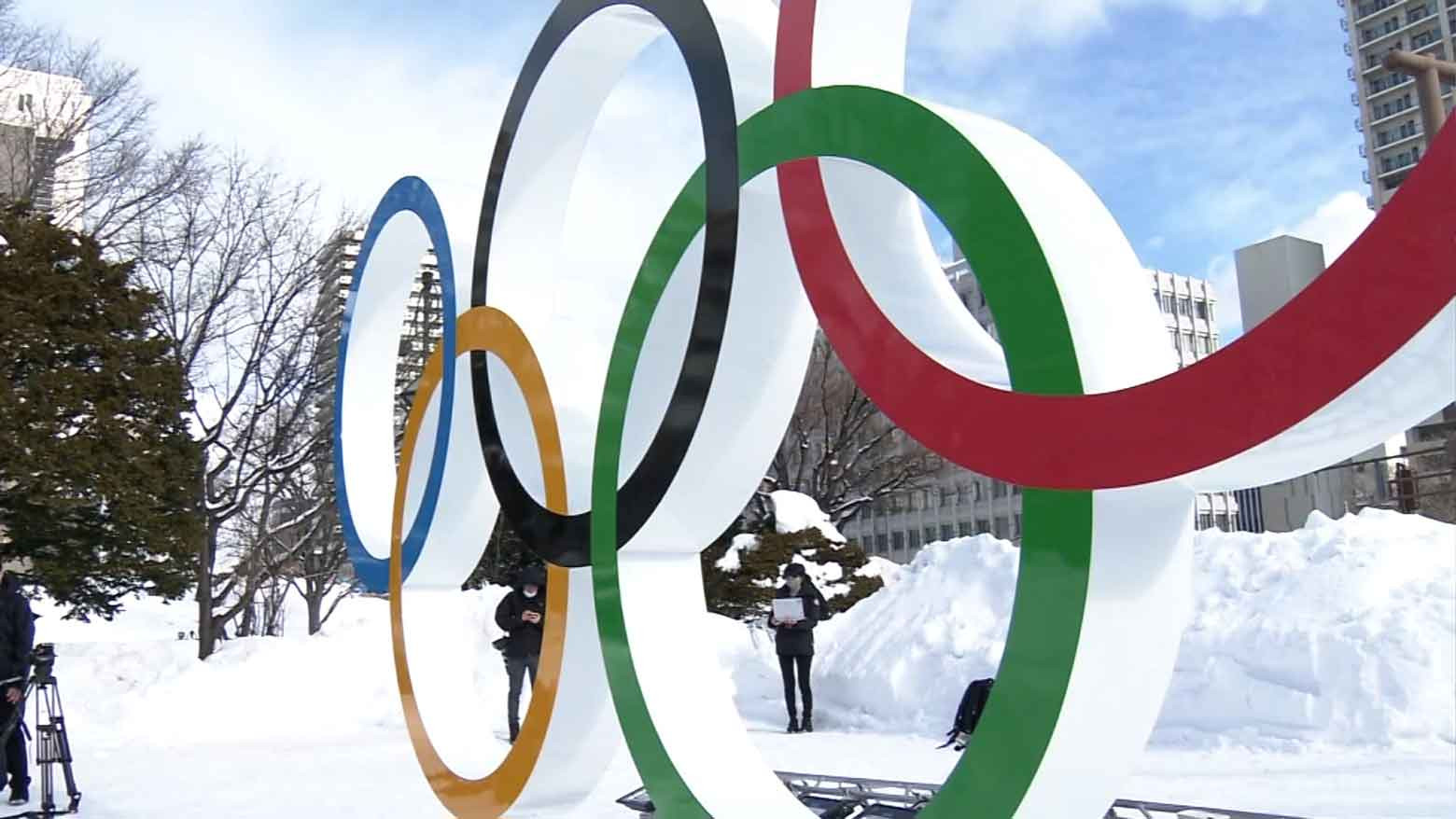Sapporo business leaders, politicians and Olympians are among the supporters of the city's bid to host the 2030 Winter Games. City leaders have already begun discussions with the International Olympic Committee about the bid, and established a promotion committee in May to boost momentum for the bid nationwide. They believe they have a strong chance to win.
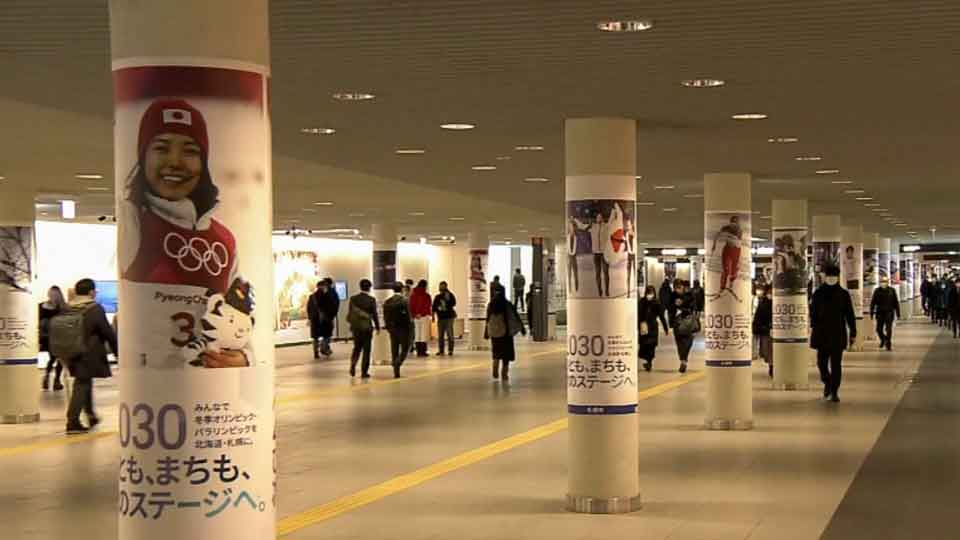
First, the city has done it before. Sapporo hosted Asia's first Winter Games in 1972. It also hosted the Tokyo 2020 marathon and race walk events, at short notice, when the venue was changed from Tokyo due to concerns about the summer heat, drawing praise from the IOC.
A sustainable bid
Sapporo's bid is also strong on sustainability, a factor the IOC has cited as important. City officials are proposing limits on the greenhouse gas emissions associated with the event, and plan to use existing venues — limiting development costs to around $700 million.
And climate change may play in Sapporo's favor. It is one of the snowiest cities in the world, with an average of nearly five meters a season over three decades up to 2020. That could prove critical if the warnings from climate scientists prove accurate.
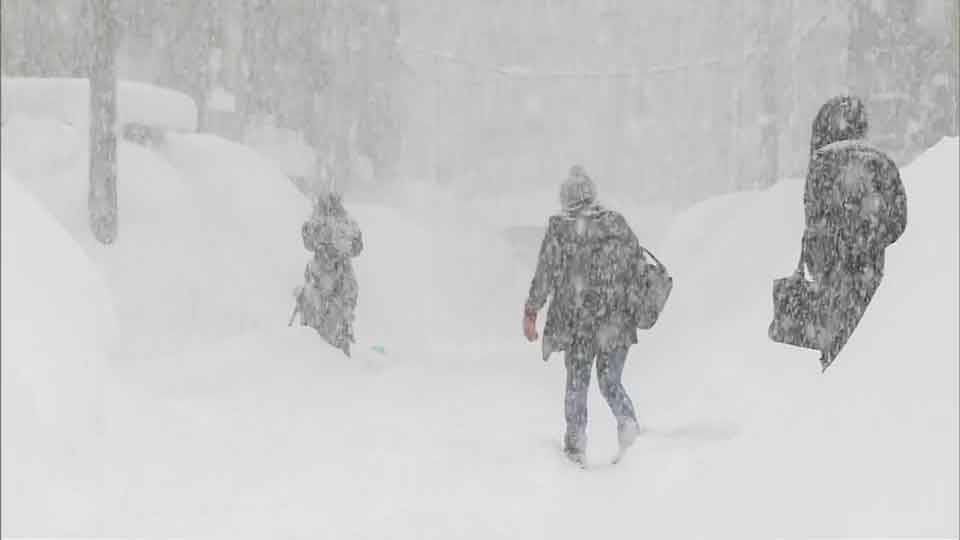
Climate change poses a threat

Researchers led by Professor Daniel Scott of Canada's University of Waterloo studied the effect of climate change on future Winter Games. They surveyed top athletes and coaches about the conditions required for fair and safe competition, and considered climate data and projections for the past 21 host cities. In results published earlier this year, they warned that unless greenhouse gas emissions are dramatically reduced, Sapporo will be the only one of the 21 previous hosts able to deliver reliable snow by 2080.

Scott says the winter period is shortening all over the world due to global warming, with a significant impact on snowfall.
He says mountains in Europe and North America are already suffering from a lack of snow. But some studies claim that in parts of Hokkaido, snowfall is actually increasing due to global warming and the increasing precipitation it brings.
Battle for public support
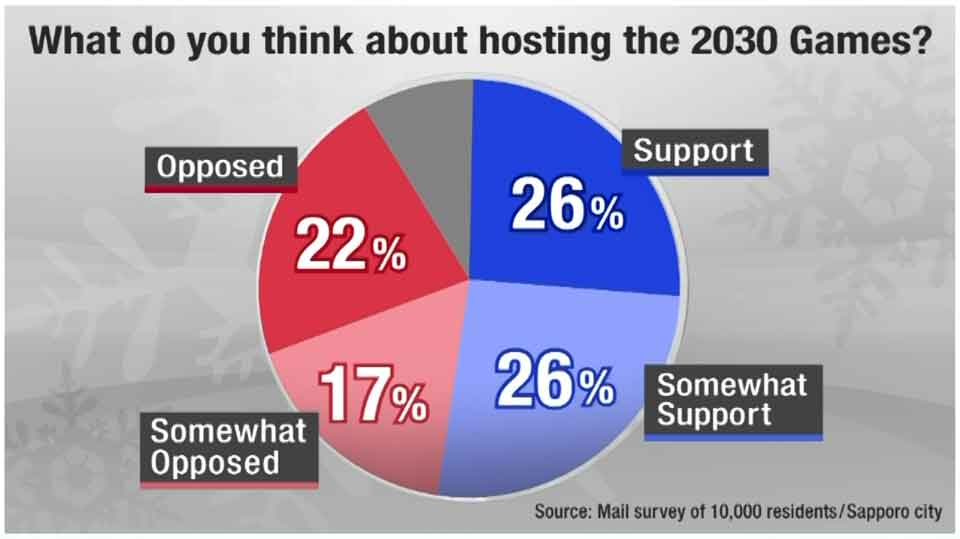
There is, however, one criterion that the IOC considers important for a bid that Sapporo's promoters are struggling with: public support. A March survey of 10,000 residents found nearly 40 percent of respondents opposed, or somewhat opposed, to the idea.
The survey suggests a significant change in people's perceptions of Olympic cost-benefits. During the bid process for the Tokyo Games, public approval ran close to 70 percent. Sapporo's Olympic supporters insist the Games will inspire children. Opponents say their efforts would be better directed elsewhere.
The organizers say the Games' operation cost would be $1.8 to $1.9 billion, but the Tokyo Games blew well past initial projections, and Sapporo's residents fear a similar over-run could cost their city.
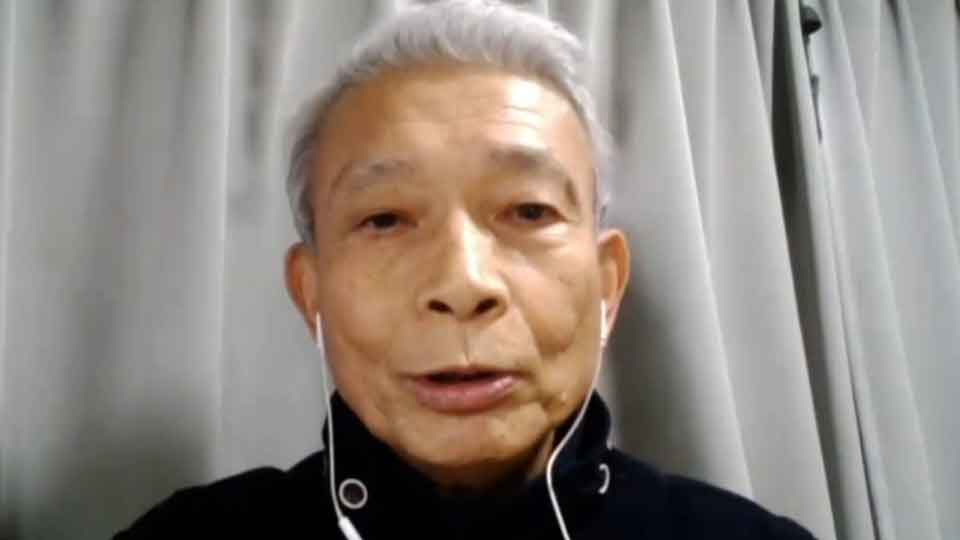
Olympics expert Masumoto Naofumi, a visiting professor at Tokyo Metropolitan University, says Sapporo's business community has led the bid with an emphasis on local economic benefits.
He worries that the plan does not adequately reflect lessons learned from the Tokyo Games. He also says the Sapporo bid lacks any vision in terms of the Olympic movement's message of world peace.
Masumoto lists cities such as Innsbruck in Austria and Calgary in Canada that gave up their bids due to public opposition in local referendums. And he says a referendum should be held in Sapporo, too, since local taxes will be used. For now, Sapporo's local government has no such plan.
An IOC delegation visited Sapporo in late May to check the proposed venues and facilities. They are expected to give advice on how to improve their plans. Sapporo is expected to vie with Vancouver, Salt Lake City, and the Catalonia-Aragon regions of Spain for hosting rights.
Officially, the winner will be selected next year when the International Olympic Committee meets in Mumbai. But Committee President Thomas Bach says the executive board will decide this December which bidder will be engaged in what he calls "targeted dialogue" — suggesting that this is when their preferred venue will effectively be selected. That leaves Sapporo officials with just seven months to convince a skeptical public that the Games should be theirs.
